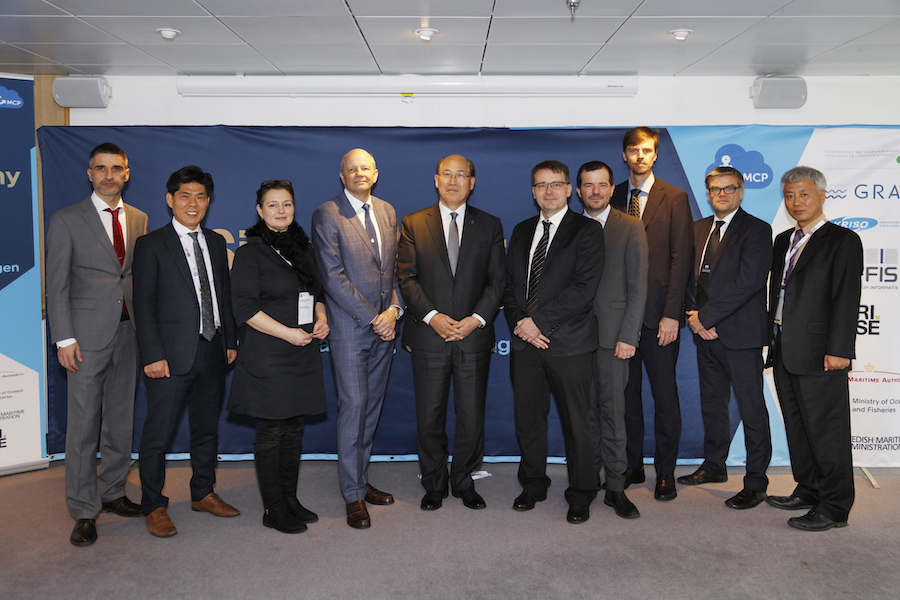The MCP consortium (MCC) is governing body of the MCP. It defined the criteria of being MCP service providers and endorses organisations to be such.
Structure

The Structure of MCC
The MCC has been structured in a way inspired by the World Wide Web consortium (W3C). An as with W3C, the MCC has a few number of host members, which are all non-profit organisations. An addition to these, there are regular members, which can also be for-profit-organisations. The host members form the board, which decides on new members and endorses MCP service providers. Documents defining the criteria for being MCP services providers must be adopted by the General Assembly, in which all members are represented, with veto possibility for the host members. Furthermore, the MCC has an advisory board and a few governmental observers that are represented at the board, but without voting rights.
History

The Inauguration of MCC
The concept of the MCP was born around 2011 with a different name: The Maritime Cloud. The idea came from one of the first international projects focusing on e-navigation - the EU co-funded EfficienSea project (2008-2011). In this project, prototypes of e-navigation services was developed, and the need for a platform to facilitate secure and reliable communication was identified. Since that, the MCP has been developed by a number of different organisations in various projects including, Monalisa 1+2, EfficienSea2, STM Validation project (all EU co-funded projects) and the Korean SMART Navigation project. In 2019 some of the involved organisation (the founding fathers) - established the Maritime Connectivity Platform Consortium - actually precisely on the 8th of February onboard M/S Pearl Seaways during the conference - e-Navigation Underway International 2019.
MCC Members
The MCC has the following members.
Host Members
- KRISO, Republic of Korea
- General Lighthouse Authorities of UK and Ireland
- Fintraffic, Finland
- Australian Maritime Safety Authority, Australia
- Canadian Coast Guard, Canada
Governmental Observers
- The Danish Maritime Authority
- Swedish Maritime Administration
- Ministry of Oceans and Fisheries of the Republic of Korea
Regular Members
- DFDS (DK)
- SSPA (SE)
- Fraunhofer CML (DE)
- Frequentis (AT)
- Bergmann Marine (DE)
- P3KI (DE)
- Vissim (NO)
- Iridium (US)
- National Technical University of Athens (GR)
- SeaTopic (FR)
- MarineFields (CY)
- Navelink (SE)
- Sternula (DK)
- Steor (RU) – has temporarily suspended their membership
- Italian Hydrographic Institute (IT)
- GMT (KR)
- Neonex Soft (KR)
- National Taiwan Ocean University (TW)
- Oslo University (NO)
- AIVeNautics (KR)
- DLR (DE)
- RISE (SE)
- University of Copenhagen (DK)
- IHI Corporation (JP)
- Goodmill Systems (FI)
- DiNav (FI)
- Hiades (SP)
- HARTIS (GR)
Advisory Board
Membership Application
All other relevant organisations (non-profit and for-profit) are invited to join the consortium.
Apply for membership by filling the application form and send the filled application to the secretariat.
The application received by the secretariat will be forwarded to the next MCC board meeting for approval and once approved, the new member is required to sign the Membership Agreement annexed to Consortium Arrangement of the MCC, together with one of the Host Members.